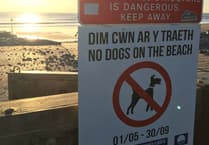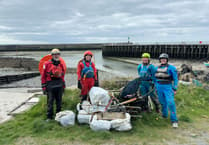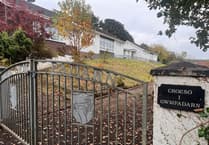Natural Resources Wales (NRW) has said “public access will be maintained” at Ynyslas Visitors Centre even if the closure goes ahead.
This comes as residents group Save our Ynyslas Visitors Centre published a 27-page document underlining the importance of the site.
In December NRW announced it was considering closing the Borth centre which attracts roughly 400,000 people a year.
Blaming lack of funds, NRW said the centre made an average loss of £50,000 a year.
NRW previously said this closure may include loss of the on beach car parking, but did not confirm what ‘maintained public access’ referred to.
NRW is also considering closing Coed Y Brenin and Bwlch Nant yr Arian centres.
In response, the residents group shared a report stressing the centre’s value for the economy, environment, jobs, tourism, well-being and education, to NRW, Welsh Government, Ceredigion MP Ben Lake, MS Elin Jones and environmental celebrities Chris Packham and Iolo Williams.
Juliet Regan, who has visited Ynyslas for 30 years, said: “We are so concerned about the possible closure of Ynyslas Visitor Centre and the detrimental effect on the local economy and the environment that we have spent a lot of time researching and writing about the positive aspects of this special place, the consequences of its closure and NRW’s responsibility to it.”
The document has contributions from experts in environmental issues and geography, beginning: “Ynyslas Centre is not broken.
“It does not make a financial loss and the environment has benefitted from being managed and cared for.”
It describes the closure as a “potential death knell” for Borth, removing an estimated £40m in tourist income.
It holds the centre responsible for recovering numbers of ringed plovers, sand lizards and wild orchids - rare species protected by centre wardens.
Elsie Grace, Head of Sustainable Commercial Development at NRW said: “The prioritisation of NRW’s work is ongoing, and the Visitor Review is part of this wider effort, as we respond to financial challenges.



.png?width=209&height=140&crop=209:145,smart&quality=75)

Comments
This article has no comments yet. Be the first to leave a comment.